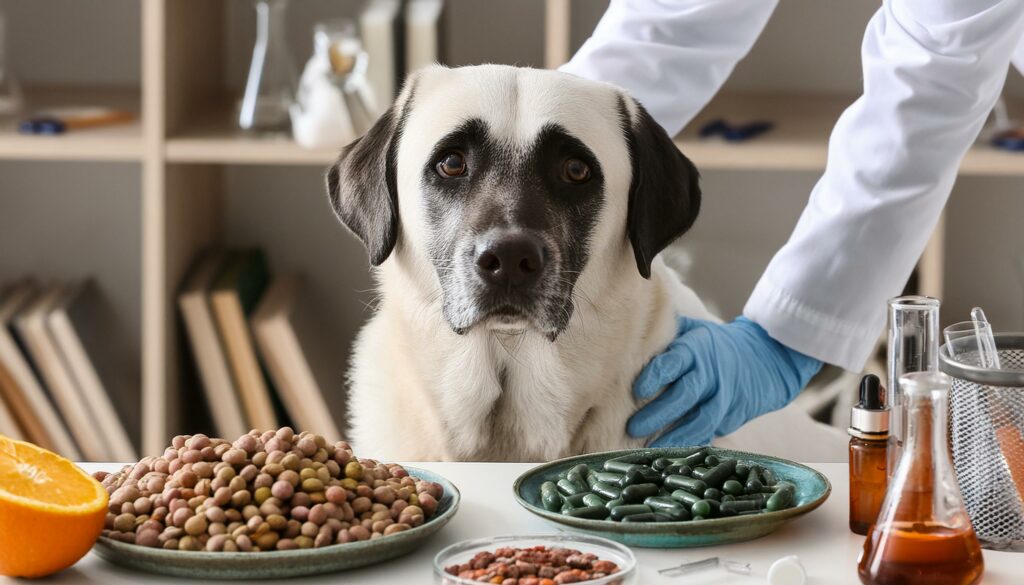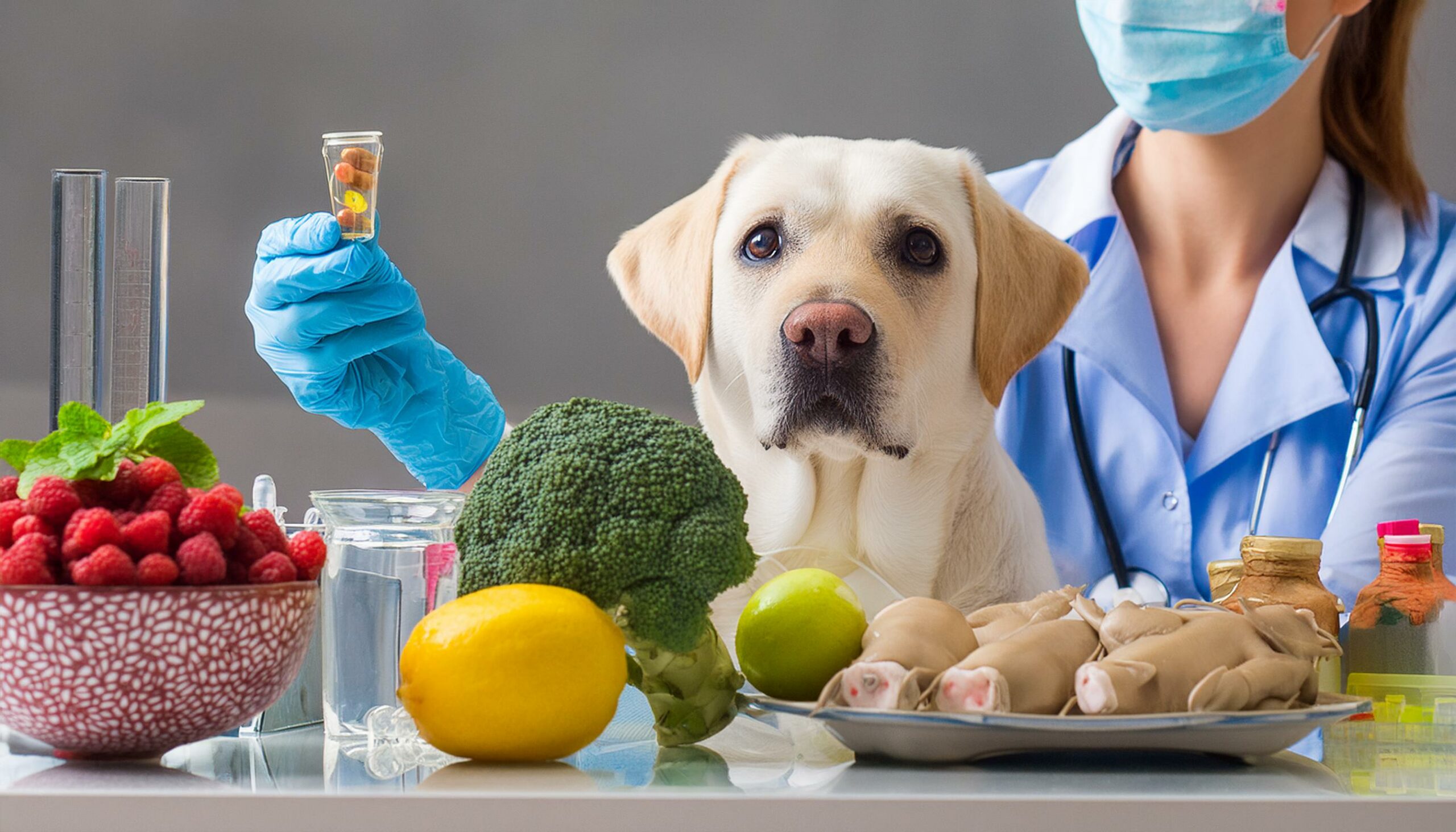Labrador Retrievers are among the most beloved dog breeds globally, cherished for their friendly disposition, intelligence, and loyalty. As cherished members of our families, ensuring their health and well-being is paramount, which includes understanding what foods can be harmful to them.
Understanding Labrador Dietary Needs
Labradors have unique dietary requirements to support their robust physique and energetic nature. Providing a balanced diet tailored to their needs is essential for their overall health and longevity.
Nutritional Requirements of Labradors
Labradors thrive on diets rich in high-quality protein, healthy fats, vitamins, and minerals. It’s crucial to choose dog food formulated specifically for their breed size and activity level, prioritizing products with meat listed as the primary ingredient and avoiding fillers like corn or soy.
Common Foods Safe for Labradors
While certain human foods can be safe for Labradors in moderation, it’s essential to choose wisely. Lean meats, such as chicken or turkey, along with fruits like apples and blueberries, and vegetables such as carrots and green beans, can be excellent additions to their diet or occasional treats.
Toxic Foods for Labradors
Despite their seemingly robust constitution, Labradors are susceptible to various foods that can be toxic to them. Being aware of these hazards and taking precautions to prevent accidental ingestion is crucial for their well-being.
Chocolate and Caffeine
Chocolate contains theobromine and caffeine, both of which are toxic to dogs. Even small amounts can lead to symptoms such as vomiting, diarrhea, rapid breathing, increased heart rate, seizures, and, in severe cases, death. Dark chocolate and baking chocolate are particularly potent and can pose greater risks to Labradors.
Grapes and Raisins
Grapes and raisins are known to cause kidney failure in dogs, including Labradors. The exact compound responsible for this toxicity is unknown, but ingestion can lead to symptoms like vomiting, diarrhea, abdominal pain, lethargy, and decreased urine production. Prompt veterinary attention is crucial if ingestion occurs to prevent irreversible kidney damage.
Onions and Garlic
Onions and garlic, whether raw, cooked, or powdered, contain compounds that can damage a dog’s red blood cells, leading to anemia. Symptoms may include weakness, lethargy, pale gums, vomiting, diarrhea, and difficulty breathing. Even small amounts can be harmful, so it’s best to avoid feeding Labradors any foods containing these ingredients.
Xylitol
Xylitol, a sugar substitute commonly found in sugar-free gum, candies, baked goods, and some peanut butter brands, can be extremely toxic to dogs, including Labradors. Ingestion can lead to a rapid release of insulin, causing hypoglycemia (low blood sugar), seizures, liver failure, and even death. It’s crucial to check product labels carefully and keep all xylitol-containing items out of reach.
Alcohol
Alcohol consumption can have severe consequences for dogs due to their smaller size and different metabolism compared to humans. Ingestion can lead to symptoms such as vomiting, diarrhea, lack of coordination, difficulty breathing, coma, and even death. Alcoholic beverages, as well as foods containing alcohol (e.g., rum-soaked cakes), should be kept away from Labradors at all times.
Macadamia Nuts
Macadamia nuts are another common household item that can be toxic to Labradors. The exact mechanism of toxicity is unknown, but ingestion can lead to symptoms such as weakness, tremors, vomiting, hyperthermia (elevated body temperature), and inability to walk. While rare, it’s essential to be cautious and prevent access to foods containing macadamia nuts.
Effects of Toxic Foods on Labradors

Ingestion of toxic foods can have immediate and long-term effects on a Labrador’s health, ranging from mild gastrointestinal upset to life-threatening complications.
Symptoms of Toxic Food Ingestion
Symptoms vary depending on the type and amount of food ingested but may include vomiting, diarrhea, abdominal pain, lethargy, weakness, tremors, seizures, difficulty breathing, and collapse. It’s essential to monitor your Labrador closely and seek veterinary attention if any concerning symptoms arise.
Potential Long-term Health Effects
Repeated exposure to toxic foods can have lasting consequences for a Labrador’s health. Kidney damage, liver dysfunction, neurological disorders, gastrointestinal problems, and even death can occur in severe cases. Prompt treatment is essential to minimize the risk of long-term complications.
Prevention and Treatment
Preventing access to toxic foods is the best way to protect your Labrador from harm. Store all human foods securely out of reach, be mindful of potential hazards when cooking or entertaining guests, and educate family members and visitors about the importance of not feeding your dog any table scraps without permission.
If ingestion of a toxic food does occur, contact your veterinarian or an emergency animal hospital immediately. Time is of the essence when dealing with poisoning cases, and prompt treatment can significantly improve the outcome. Depending on the situation, treatment may involve inducing vomiting, administering activated charcoal to absorb toxins, intravenous fluids to support hydration and flush out toxins, medication to control symptoms, and close monitoring in a veterinary hospital.
Conclusion
As responsible pet owners, it’s our duty to be vigilant about the foods that can pose a risk to our beloved Labrador Retrievers. By understanding their dietary needs and being mindful of potential hazards, we can help keep them safe and healthy for years to come.
FAQs
Can small amounts of toxic foods harm Labradors?
Yes, even small quantities of certain foods can be harmful to Labradors, so it’s essential to keep them away from all toxic foods.
How quickly should I seek veterinary help if my Labrador ingests a toxic food?
It’s crucial to contact a veterinarian immediately, as prompt treatment can significantly improve the outcome.
Are there any safe alternatives to toxic foods for Labradors?
Yes, there are plenty of safe treats and foods specifically made for dogs that you can offer your Labrador instead of toxic human foods.
Can dogs develop allergies to certain foods?
Yes, dogs, including Labradors, can develop allergies to various foods, so it’s essential to monitor their reactions and consult with a veterinarian if needed.
How can I train my Labrador to avoid eating toxic foods?
Consistent training, using positive reinforcement, and keeping toxic foods out of reach are key to preventing accidental ingestion.
